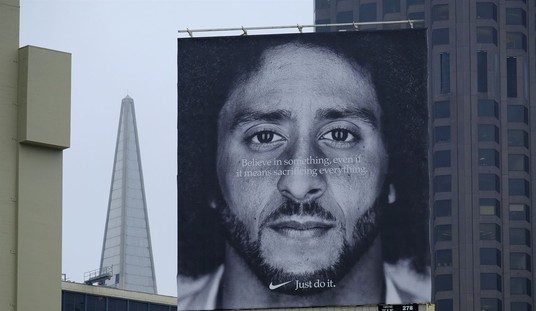Writing in Mother Jones on Monday, the liberal columnist Jonathan Chait has some bad news for Republicans: Attacks on Clinton’s populist credentials are, he reveals, doomed to failure.
Pay no mind to the fact that a variety of Wall Street veterans have gone on the record confessing that they care little for Clinton’s base-assuaging progressive rhetoric regarding income inequality and CEO compensation. Ignore well-sourced reports that note the trading community sees the former New York lawmaker as a “dependable, business-friendly force within a Democratic Party that has grown increasingly populist.” Ignore all of that. What’s really important is the fact that Clinton is a Democrat.
“He argues that Clinton is a tool of the rich, and the only possible fact undermining this otherwise obvious reality is her party’s platform, i.e., the stuff she would do as president,” Chait wrote of The Weekly Standard columnist Jay Cost who recently identified Clinton’s populist authenticity as a point of vulnerability for her.
Chait went on to indulge in a detailed and thoughtful dissection of both the Democratic and Republican Party’s economic programs. He came to the conclusion that both ends of the political spectrum pay lip service to the notion of propping up the little guy over the nation’s moneyed interests, but only Democrats match their rhetoric with action.
“It would be wonderful if Republicans stopped being a party whose most despised spending programs benefit the poor and whose most acceptable spending programs benefit the middle class or even the affluent,” Chait concludes.
If Clinton plans to defuse the political liability associated with her friendliness toward major financial institutions by insisting that liberal partisans should put their faith in the Democratic Party, it’s going to be a difficult sell for uncommitted voters next autumn. Not to mention the partisan progressives in the Warren wing of the Democratic Party who are already skeptical of Barack Obama’s record on populist economic matters.
The latest revelation indicating that the Clintons are susceptible to cajoling from financial interests was revealed on Monday by International Business Times reporters. That dispatch alleges that the investment bank Goldman Sachs paid former President Bill Clinton $200,000 for a single speech shortly before lobbying Hillary Clinton’s State Department over the Budget Control Act of 2011 (what became known as “the sequester”).
“Three days after Bill Clinton accepted Goldman’s money to make a speech in New York City, Hillary Clinton delivered her own address at the State Department in Washington: She lauded the investment bank’s participation in her department’s campaign to boost the numbers of American students who study in China,” the IBT report read.
According to an ethics agreement governing Hillary Clinton’s tenure as an Obama administration Cabinet official, all of her husband’s paid speeches while she was secretary of state required the prior approval of department officials. Bill Clinton’s 2011 speech to a conference full of Goldman clients gathered in New York gained the blessing of State Department officials, documents obtained by Judicial Watch say.
The discovery that Bill Clinton accepted a six-figure payday from Goldman Sachs just before the bank sought the ear of his wife’s department seems certain to intensify scrutiny of the Clinton family’s often overlapping personal, philanthropic and official business interests.
In the two weeks since she formally declared herself an aspirant for the presidency, gaining status as the presumptive Democratic nominee, Hillary Clinton has been dogged by allegations that foreign governments and well-connected investors have used generosity to her husband and their family’s philanthropic empire, the Clinton Foundation, as a means of seeking to influence policy at her State Department.
A spokesperson for Goldman Sachs denied that they lobbied the State Department regarding budget issues. Neither the State Department nor Bill Clinton’s representatives commented on the story.
Chait has a point, albeit a debatable one, if he is arguing that attacks on Clinton’s commitment to populism are unfair. If his contention is that these attacks won’t be effective, that doesn’t seem likely. At least, not at this early stage of the 2016 presidential race.
Does the appearance of yet another quid pro quo scandal do damage to Hillary’s carefully crafted public image as champion of the little guy? Most definitely.








Join the conversation as a VIP Member